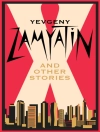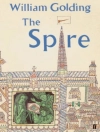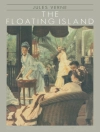Charlotte M. Yonge’s ‘The Daisy Chain, or Aspirations’ is a rich tapestry of Victorian ideals, exploring themes of family, duty, and the moral formation of young women. Through the lives of the interconnected members of the Overton family, Yonge employs a narrative style that seamlessly blends realism with didacticism, illustrating the complexities of relationships and the social expectations of the era. The novel is set against a backdrop of emerging modernity, reflecting the tension between traditional values and progressive ideals, particularly in the realm of female education and social responsibility. Yonge, a prominent figure in the 19th-century literary landscape, was deeply engaged with the challenges of her time, particularly regarding women’s roles in society. An avid advocate for education and moral rectitude, her experiences and insights as a devout Anglican and the daughter of an educator shaped her narrative approach. This context imbues ‘The Daisy Chain’ with a sense of authenticity and urgency, as Yonge seeks to inspire her readers, particularly young women, to aspire towards their own betterment and the service of others. This novel is highly recommended for readers interested in exploring the complexities of Victorian society, particularly the nuanced portrayal of female aspirations and moral dilemmas. Yonge’s articulate prose and engaging character development provide not only a compelling story but also provoke thoughtful reflection on the role of women in the pursuit of personal and societal ideals.
Sobre o autor
Charlotte Mary Yonge (1823-1901) was a prolific English novelist esteemed for her depictions of domestic life and the earnest implementation of Tractarian principles within her narratives. Yonge’s literary career flourished with a corpus of over 160 works ranging from fiction to educational texts. Born into an Anglican family in Hampshire, her life and writings were significantly influenced by the Oxford Movement, an affiliation that is lucidly reflected in her prose. Her best-loved novel, ‘The Heir of Redclyffe’ (1853), was a paragon of Victorian virtue and piety, entrenching her reputation as a didactic author who conveyed moral instruction amidst engaging storytelling. The novel ‘The Daisy Chain, or Aspirations’ (1856) is another of her distinguished works that adeptly intertwine familial responsibilities with religious and social commitments, presenting a vivid portrayal of middle-class life. Yonge’s narratives, characterized by an interplay of realism and moral discourse, often articulated themes of self-improvement and sacrifice, resonating with Victorian readers. Her legacy has been acknowledged by modern scholarship, which appraises her contributions to literary culture and her role in shaping Victorian social mores through her didactic yet entertaining prose.












